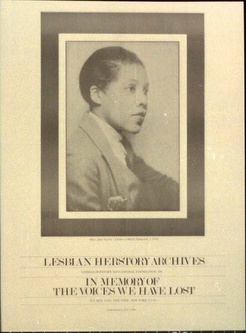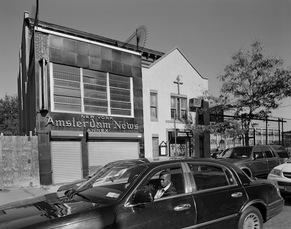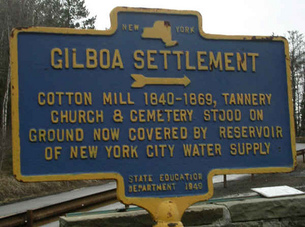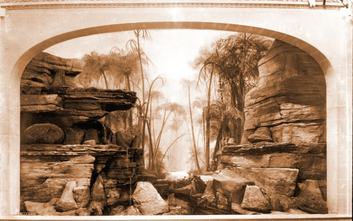 "In Memory of the Voices We Have Lost"
"In Memory of the Voices We Have Lost" Tonia was born in Brooklyn on March 28, 1927, and she moved to Gilboa, New York, in 1971. Here she founded Damas Gracias Writers’ Workspace, where lesbian writers could offer workshops and retreats for women.
 Office of the Amsterdam News
Office of the Amsterdam News She had a passion for lesbian culture that was undiminished, and Damas Gracias, located on a beautiful creek, reflected the dream of a “room of one’s own.”
The one obituary I have, sent to me by Basil Kreimendahl, who attended my workshop, notes that “She is survived by two sisters, Hazel Chambers of Brooklyn and Ruby Grant of Gilboa; a brother, Edgerton Grant of Brooklyn; a son, Tonio M. Grant of Gilboa; and two grandchildren, Mychal and Amaya Grant of West Virginia.” And, it notes, there was a service for her in Grand Gorge.

"I also remember Tonia telling me how much she enjoyed every year going to the Carribean and that she had family there. She also told me that she had a brownstone in Brooklyn. At one point, she had a private club for women in it. This was when that was the safest way to meet. She was also an actress."
Because I am unable to locate more information about Tonia, I want to turn to the land she chose for her dreams : the small town of Gilboa located in the Catskill Mountains.There are two facts about this small town that seem to me to stand as metaphors for the greater and seemingly lost story of Tonia’s life.
First, in 1926, the year before Tonia’s birth, the original town was razed and flooded by the damming of the Schoharie Creek. Many of the townspeople fought “eminent domain,” right up to the flooding and for two decades beyond. The project was built by African American and Italian immigrant labor.
 The prehistoric trees of Gilboa
The prehistoric trees of Gilboa Wow… an underwater town and the world's oldest trees. Tonia’s history… a history of African American womanism, of secret communities of lesbians of color… bars and private clubs and meetings in homes. A history of displacement, of submerged identities, of the “eminent domain” of a white, heterosexist, misogynist culture.
But something older, far older remains. The dozens of lesbian writers and writing students who passed through Damas Gracias will leave our writings, and our writings will influence other writings, and these legacies will continue to testify about a culture and a passion as old as human life… to the powerful love between women. These are our “fossils”… the artifacts that will bear witness to our lives.
Tonia Grant was here. And she lived her dream against nearly impossible odds, and she shared it with the community she loved. “Damas Gracias” says it all… “Thank you, ladies.”

 RSS Feed
RSS Feed
